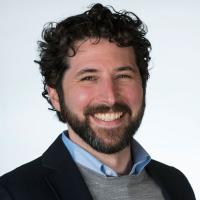Team
Principle Investigators
Peter Muennig, MD, MPH
- Professor of Health Policy and Management
- Columbia University
Policies that focus on education, immigration, welfare, the control of industrial pollution, and the built environment may produce large impacts, particularly if the balance of investments is optimized. Peter Muennig, MD, MPH is a Professor at Columbia University's Department of Health Policy and Management. His research focuses on eliminating the preventable burden of disease through the optimal mix of actionable medical and non-medical social policies. He combines randomized controlled trials and cost-effectiveness analyses to better understand what this optimal mix of policies might be. Peter has advised the Centers for Disease Control and Prevention, Health Canada, the Chilean government, and the Chinese government regarding which policies might be needed to optimize population health. He has published 100 peer-reviewed articles in the scientific literature, and has written 4 books. His work has appeared on NPR, CNN, MSNBC and multiple times in major print media sources, such as the New York Times, the Wall Street Journal, and a 3 part series in Slate.

Daniel Belsky, PhD
- Associate Professor of Epidemiology (in the Robert N. Butler Columbia Aging Center)
- Columbia University
Dan Belsky, Ph.D. is an Associate Professor of Epidemiology at the Columbia University Mailman School of Public and the Butler Columbia Aging Center, where he directs the Center’s Geroscience Computational Core. He was an Early-Career Fellow of the Jacobs Foundation and is a current Fellow of the Canadian Institute for Advanced Research (CIFAR) Child Brain Development Network. He was an investigator of the PROMENTA Center at the University of Oslo, Norway, and is a Senior Researcher in the SocioMed Research Nucleus at Universidad Mayor in Santiago, Chile. Dan works at the intersection of the social and behavioral sciences, genomics, and public health. His focus for the past several years has been on development and evaluation of methods to quantify the pace and progress of biological process of aging in young, mid-life, and older-adult humans and the application of these methods to study (1) how life-history and social factors contribute to individual differences in healthy aging; and (2) whether and how aging processes can be modified by intervention. With collaborators Terrie Moffitt and Avshalom Caspi he originated the Pace of Aging method to quantify the aging process from longitudinal analysis of human physiology and recently translated this method into a DNA-methylation blood test that can be implemented from a single time point of data collection. Since 2020, he has been named an ISI highly-cited researcher (current CV).

Project Team
James Riccio, PhD
- Director of the Low-Wage Workers and Communities Division
- MDRC
Dr. Riccio’s work tests innovative policies to improve labor market, human development, and quality-of-life outcomes for low-income populations. He has led the development of a large number of large-scale RCTs designed to inform government investments in social welfare programs. Dr. Riccio currently serves as the PI for MDRC’s MyGoals RCT and is a senior reviewer on the PaycheckPlus RCT in conjunction with the PI. Under a contract with HUD, he is also the PI of an RCT exploring an alternative rent policy designed to improve work outcomes for recipients of housing subsidies in four cities. He was the PI of the Family Rewards conditional cash transfer RCT experiments in NYC and Memphis and the Work Rewards experiment in NYC. Work Rewards was a precursor to the current MyGoals RCT, and demonstrated that unemployed public housing recipients will respond to employment incentives provided that they are sufficiently comprehensive. Dr. Riccio also led Britain’s largest randomized trial in social policy (covering 6 areas of the UK and including 16,000 subjects).

Jennifer J. Manly, PhD
- Professor of Neuropsychology (in Neurology, the Gertrude H. Sergievsky Center and the Taub Institute for Research on Alzheimer's Disease and the Aging Brain)
- Columbia University
Jennifer Manly, Ph.D. is a Professor of Neuropsychology in Neurology at the Gertrude H. Sergievsky Center and the Taub Institute for Research in Aging and Alzheimer’s disease at Columbia University. She completed her graduate training in neuropsychology at the San Diego State University / University of California at San Diego Joint Doctoral Program in Clinical Psychology. After a clinical internship at Brown University, she completed a postdoctoral fellowship at Columbia University. Her research on cultural, medical, and genetic predictors of cognitive aging and Alzheimer’s disease among African Americans and Hispanics has been funded by the National Institute on Aging and the Alzheimer’s Association. She has authored over 100 peer-reviewed publications and 8 chapters. In 2002 she was awarded the Early Career Award from Division 40 of the American Psychological Association, and in 2004 she was elected a Fellow of APA. She serves on the US Department of Health and Human Services Advisory Council on Alzheimer's Research, Care and Services, and is a member of the Alzheimer’s Association Medical & Scientific Research Board. She currently serves as a member at large on the Board of Governors of the International Neuropsychological Society.

Daniel Malinsky, PhD
- Assistant Professor of Biostatistics
- Columbia University
Daniel Malinsky, Ph.D. is an Assistant Professor of Biostatistics at the Mailman School of Public Health at Columbia University. Dr. Malinsky's methodological research focuses mostly on causal inference: developing statistical methods and machine learning tools to support inference about treatment effects, interventions, and policies. Current research topics include graphical structure learning (a.k.a. causal discovery or causal model selection), semiparametric inference, time series analysis, and missing data. Application areas of particular interest include environmental determinants of health and health disparities. Dr. Malinsky also studies algorithmic fairness: understanding and counteracting the biases introduced by data science tools deployed in socially-impactful settings. Finally, Dr. Malinsky has interests in the philosophy of science and the foundations of statistics.

Zohn Rosen, PhD
- Lecturer in Health Policy and Management
- Columbia University
Zohn Rosen, Ph.D. is a Lecturer in Health Policy and Management at the Columbia University Mailman School of Public Health. Dr. Rosen is an experimental psychologist, and is currently an investigator on a study funded by the National Institutes of Health. He has a long history of managing large-scale research projects, and extensive experience in regulatory matters related to conducting studies in the US.






